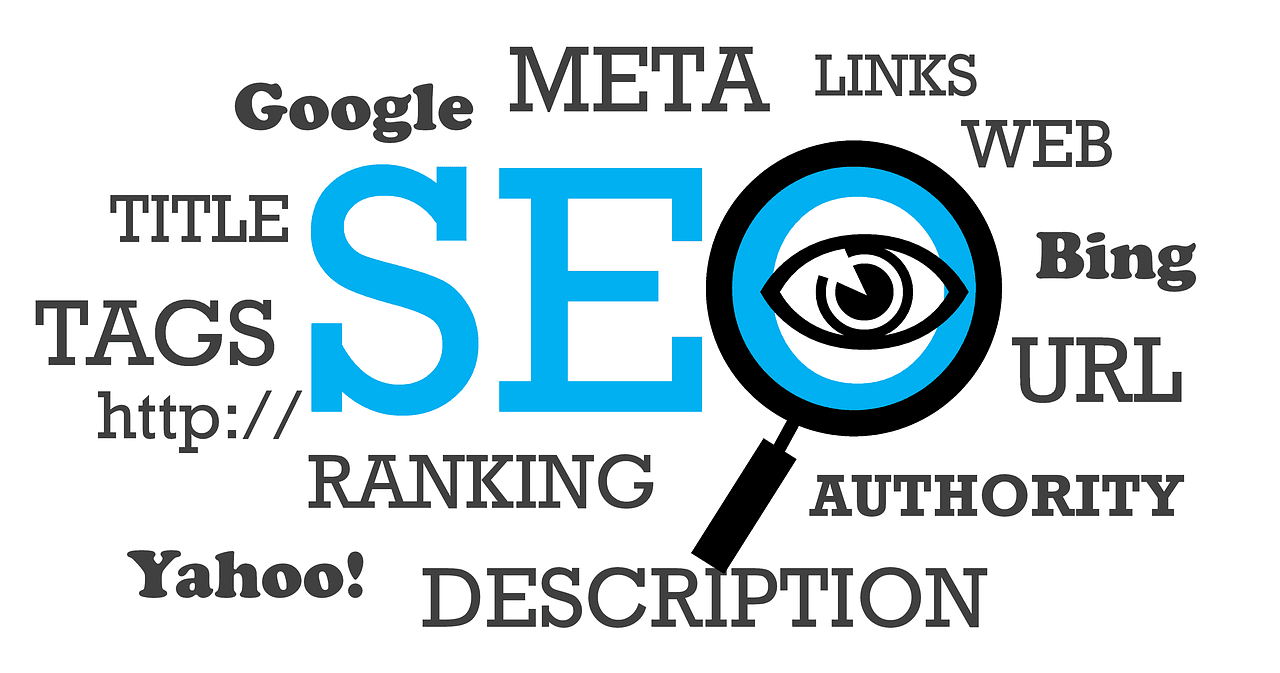Introduction to SEO and WordPress Plugins
Search Engine Optimization (SEO) is a critical aspect of website success in today’s digital landscape. With millions of websites vying for the attention of users, effective SEO strategies are essential for improving visibility, enhancing site traffic, and ultimately driving conversions. For websites built on the WordPress platform, leveraging SEO plugins can significantly streamline the optimization process, making it easier for site owners to manage their SEO efforts.
The role of WordPress SEO plugins is to provide tools and functionalities that aid in optimizing various elements of a website. These plugins offer comprehensive solutions, including keyword analysis, readability checks, and technical SEO adjustments. By using these tools, WordPress users can ensure their websites adhere to best practices recommended by search engines, thus improving their chances of ranking higher in search results.
As we look to the year 2025, it is pertinent to recognize that the digital landscape is continuously evolving. Search engines are becoming increasingly sophisticated, employing advanced algorithms that require website owners to adapt and refine their SEO strategies. WordPress SEO plugins play a pivotal role in this dynamic environment, offering features that cater to the changing demands of search engine algorithms. These tools not only automate fundamental tasks but also provide insightful analytics and data-driven recommendations, allowing users to make informed decisions about their SEO initiatives.
Furthermore, the relevance of maintaining an SEO-optimized website goes beyond achieving higher search rankings. It extends to improving user experience, increasing site speed, and ensuring that content is accessible and engaging. As businesses and content creators strive to capture their audience’s attention, understanding the capabilities of WordPress SEO plugins is essential to remain competitive. Thus, a comprehensive comparison of these WordPress SEO plugins is imperative for making informed choices that align with the evolving needs of digital marketing strategies.
The Importance of Choosing the Right WordPress SEO Plugins
In the ever-evolving landscape of digital marketing, the significance of search engine optimization (SEO) cannot be understated. A well-optimized website is crucial for improving search rankings, driving traffic, and ultimately enhancing online visibility. One of the foundational elements that contribute to a site’s SEO success is the choice of the appropriate SEO plugin. An effective plugin can streamline optimization processes, making it easier for site owners to achieve their marketing goals.
When considering which WordPress SEO plugins to utilize, several factors must be taken into account. First and foremost is the ease of use—a plugin that is user-friendly allows even novices to implement SEO strategies effectively. Plugins that offer a straightforward setup process, intuitive interfaces, and clear instructions can significantly reduce the learning curve, enabling users to focus on content rather than technicalities.
Compatibility is also a critical factor. The chosen plugin should seamlessly integrate with a site’s existing themes and other plugins to avoid conflicts that may impede performance. In addition to this, staying up to date with regular support and updates offered by the plugin developers is essential for maintaining optimum functionality, especially as WordPress evolves with new releases.
Moreover, different users have varying needs based on their level of expertise. For beginners, features like automated XML sitemaps and straightforward on-page SEO suggestions may be enough. On the other hand, advanced users may seek additional functionalities such as schema markup support, in-depth analytics, and integration opportunities with third-party tools. Thus, understanding one’s own requirements is vital when conducting a WordPress SEO plugins comparison. A thorough assessment ensures that the selected tool not only aligns with personal or business objectives but also contributes positively to overall site performance.
Top WordPress SEO Plugins in 2025
As the landscape for online content continues to evolve, optimizing WordPress websites for search engines remains a top priority for webmasters and bloggers alike. In this context, various WordPress SEO plugins have emerged as essential tools to improve visibility and enhance user experience. Below is a curated list of leading WordPress SEO Plugins available in 2025, along with their primary functionalities and user bases.
First on our list is Yoast SEO, a stalwart in the realm of WordPress SEO plugins. Known for its robust functionality, Yoast SEO offers comprehensive features such as on-page analysis, XML sitemaps, and social media integration. The user-friendly interface and extensive documentation make it a favorite among both beginners and seasoned professionals.
Next up, All in One SEO Pack stands out for its ease of use and powerful features. This plugin’s functionalities include XML sitemaps, advanced canonical URL support, and integration with Google Analytics. Its flexibility caters to a diverse user base, ranging from personal bloggers to large enterprises.
Rank Math has rapidly gained popularity due to its feature-rich offerings, such as 404 monitoring, redirects, and extensive keyword tracking capabilities. Its intuitive setup wizard simplifies the process for newcomers, while advanced users benefit from powerful options to fine-tune their SEO strategies.
Another noteworthy mention is SEOPress, which offers a comprehensive suite of tools including a content analysis tool, metadata management, and options for local SEO optimization. With a single license that supports unlimited sites, SEOPress appeals to agencies and freelancers alike.
Finally, WP Meta SEO is designed for those who prioritize bulk editing capabilities in their SEO efforts. This plugin focuses on metadata management, image optimization, and Google Page Speed integration, making it an excellent choice for larger sites with extensive content inventories.
These plugins represent the forefront of WordPress SEO solutions as of 2025, each catering to different needs and user preferences. As we proceed with our blog post, further comparisons will elucidate the strengths and weaknesses of these key players in the realm of WordPress SEO plugins comparison.

Feature Comparison: Yoast SEO vs. All in One SEO Pack
WordPress SEO plugins play a significant role in enhancing website visibility and optimizing content. In this context, Yoast SEO and All in One SEO Pack have emerged as two leading plugins, each offering unique features that cater to different user needs. A comprehensive comparison of these tools can help users determine which plugin aligns better with their SEO strategy.
Firstly, the user interface of Yoast SEO is widely acknowledged for its intuitive design. The onboarding process is straightforward, allowing users to configure settings with relative ease. In contrast, All in One SEO Pack provides a more utilitarian interface that may appear daunting to less experienced users. However, it compensates with a plethora of options that allow for advanced configuration once users familiarize themselves with the dashboard.
When it comes to features, Yoast SEO includes extensive tools for keyword optimization, readability analysis, and content insights that advise users on how to enhance their content for better SEO performance. It also offers a robust link-building feature, enabling users to manage internal linking effectively. On the other hand, All in One SEO Pack excels in functionalities such as XML sitemaps and social media integration. It provides a competitive edge for users looking to optimize their site for search engines while maintaining ease of use with automatic configurations.
In the realm of content analysis, Yoast SEO stands out with its real-time analysis and suggestions for improving content before publication. This function is critical for those focused on optimizing their site content and ensuring it ranks well. All in One SEO Pack, while lacking some of these immediate insights, offers useful tools for bulk editing and customization, which may benefit more advanced users managing larger websites.
Ultimately, both plugins have their strengths and weaknesses, making the choice dependent on individual user preferences and specific SEO needs. Understanding the core differences between these WordPress SEO plugins is essential in making an informed decision that will enhance overall site performance.
Emerging Plugins: Rank Math vs. SEOPress
In the competitive landscape of WordPress SEO Plugins, two plugins have gained significant traction in recent years: Rank Math and SEOPress. Each of these plugins introduces unique features aimed at enhancing site optimization and facilitating better search engine visibility for users. As the quest for effective WordPress SEO plugins comparison continues, it is essential to explore what these emerging contenders bring to the table.
Rank Math has positioned itself as a robust all-in-one SEO solution. It offers a user-friendly interface and integrates seamlessly with a wide range of third-party tools, which are essential for effective SEO management. Key features include integrated schema markup, advanced keyword optimization capabilities, and built-in support for tracking SEO performance through Google Analytics. These functionalities have contributed to its rapid adoption, particularly among those seeking a consolidated SEO tool without the need for multiple plugins.
On the other hand, SEOPress caters to users looking for a lightweight yet powerful SEO solution. With a focus on enhancing website speed and performance, SEOPress provides features such as social media integration, XML sitemaps, and responsive schema data. Notably, it also offers an extensive free version, making it accessible for beginners while still providing premium features that appeal to advanced users. However, some might find its interface less intuitive compared to competitors
When comparing these two plugins, Rank Math excels in its extensive feature set and integration capabilities. Conversely, SEOPress gains favor for its simplicity and speed optimization. Each plugin offers distinct advantages and potential drawbacks, making the choice largely dependent on individual website needs and user preferences. As the SEO landscape continues to evolve, both Rank Math and SEOPress represent formidable options in the WordPress SEO plugins comparison, ultimately influencing the optimization strategies employed by webmasters.
User Experience and Support: A Critical Factor
When evaluating the various WordPress SEO Plugins available for WordPress, user experience and support emerge as critical factors that can significantly influence one’s choice. The effectiveness of an SEO plugin is not solely determined by its features; rather, how easily those features can be utilized also plays a vital role. Users often seek plugins that are intuitively designed, providing smooth navigation and straightforward functionalities. Analyzing user reviews reveals a pattern: plugins that score high in user satisfaction typically prioritize ease of use, allowing newcomers and seasoned professionals alike to optimize their websites without unnecessary complications.
Furthermore, the availability of tutorials and learning resources cannot be overlooked. Comprehensive documentation and beginner-friendly guides enhance the overall user experience, making it simpler for users to fully leverage the capabilities of an WordPress SEO Plugins. A plugin with a wealth of tutorials tends to foster a more supportive environment, as individuals can find answers to their queries with ease. This not only aids in resolving immediate issues, but also contributes to a more profound understanding of SEO strategies over time.
The value of community support should also be considered in the WordPress SEO plugins comparison. A robust community can provide invaluable insights, tips, and tricks from fellow users. Forums and active discussion groups allow for real-time problem-solving and the sharing of best practices, which is especially beneficial in the rapidly evolving digital landscape. Additionally, plugins that offer responsive customer service are favored by users; timely assistance for technical problems can significantly reduce frustration and downtime.
In conclusion, when selecting an WordPress SEO Plugins, assessing the user experience and the level of support provided is paramount. By taking these factors into account, users can ensure that they choose a plugin that not only meets their SEO needs but also supports them throughout their optimization journey.
Cost vs. Value: Analyzing Pricing Models
When selecting a suitable WordPress SEO Plugins, it is essential to analyze the cost versus the value offered by the various options available. The market features a range of SEO plugins, each with its pricing model and unique feature set. Generally, these can be categorized into free, freemium, and premium offerings.
Free WordPress SEO Plugins, like Yoast SEO, provide fundamental features necessary for basic search optimization without any financial commitment. They often encompass essential functionalities such as meta tag management, basic sitemap generation, and simple content analysis tools. However, while these offerings may cater to small websites with limited SEO needs, they may lack advanced features available in premium alternatives, such as comprehensive keyword research tools and priority support.
On the other hand, freemium models typically offer a free version alongside paid upgrades. A prime example is All in One SEO Pack, which provides a robust free version but encourages users to upgrade to access premium features, including advanced schema markup and SEO performance monitoring. This model can be attractive for those who seek to gradually scale their SEO efforts as their website grows in complexity and importance.
Premium options like SEOPress or Rank Math present a different proposition, often charging a monthly or annual fee for their comprehensive suite of features, including in-depth SEO analysis, continual updates, and dedicated support. The investment could provide excellent returns for businesses that prioritize a strong online presence, particularly in competitive markets. Evaluating cost-effectiveness involves examining the features included, potential increase in traffic, and overall impact on search rankings.
Ultimately, the decision hinges on the specific requirements of the website being optimized. By understanding the various pricing models and features provided by each plugin, users can make informed decisions that align their budget with their SEO goals.
Future Trends in SEO Plugins for WordPress
As we look ahead to 2025, the landscape of WordPress SEO plugins is expected to undergo significant transformations driven by emerging technologies and evolving best practices. One of the most anticipated trends is the integration of artificial intelligence (AI) into SEO plugins. AI can provide advanced analytics and personalized recommendations, allowing WordPress users to optimize their content strategies more effectively. Enhanced algorithms may analyze user behavior and search engine data, offering real-time insights to refine SEO efforts automatically.
Moreover, the rise of voice search and smart devices will likely influence the design of SEO plugins. Plugins that prioritize conversational keywords and long-tail phrases that align with voice search queries will be vital for content creators. This shift will alter how metadata is structured and how keywords are chosen, guiding users to adopt keywords that reflect natural language patterns. Consequently, WordPress SEO plugins are expected to evolve in functionality to address these changes, providing features that mirror the complexities of modern search engines.
Another growing focus will be on user experience (UX) and site performance. Google has already placed emphasis on page experience in its ranking criteria and this trend will continue. Future WordPress SEO plugins may incorporate more tools for assessing and enhancing site speed, mobile responsiveness, and overall UX. As search engines increasingly prioritize the holistic experience of users, the plugins that assist webmasters in optimizing these elements are poised to gain more traction.
In conclusion, as we advance toward 2025, the WordPress SEO plugins comparison landscape will shift significantly, focusing on AI capabilities, voice search optimization, and enhanced user experience. By adopting these anticipated advancements, website owners can stay ahead of the curve in their SEO efforts, ensuring their content remains visible in an ever-changing digital environment.
Conclusion: Making an Informed Choice
As we have explored in this WordPress SEO plugins comparison, it is paramount for website owners to select the right tool that aligns with their specific goals and needs. The variety of available plugins each offers unique features, which can significantly impact the effectiveness of your SEO strategy. It is essential to consider factors such as ease of use, supported functionalities, and compatibility with your website’s existing architecture when making your choice.
Each plugin examined presents its strengths. For instance, some plugins focus on providing extensive analytical features, allowing users to monitor performance closely, while others prioritize on-page optimization and user experience improvements. Identifying the core objectives of your SEO efforts—whether expanding your audience reach, improving keyword rankings, or enhancing site performance—should drive your decision-making process. Understanding your priorities will help you hone in on the plugin that best suits your requirements.
Moreover, it is worthwhile to consider community support and documentation associated with a plugin. A well-documented SEO plugin with an active user community can furnish valuable insights and troubleshooting advice. This is particularly helpful for those new to SEO or WordPress in general, as it can minimize the learning curve and foster a smoother integration process.
Ultimately, the right choice in a WordPress SEO plugin could mean the difference between successful website optimization and increased traffic or stagnation. Therefore, it is highly recommended to take the time to evaluate all options carefully while reflecting on your short-term and long-term objectives. By thoroughly reviewing the features, usability, and support that various plugins offer, you will be more equipped to make an informed decision that will enhance the overall success of your website.




